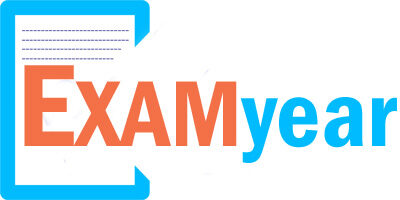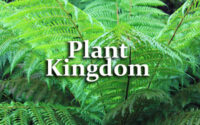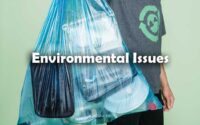Cell the Unit of Life Questions and Answers
1. Which among the following are the smallest living cells, known without a definite cell wall, pathogenic to plants as well as animals and can survive without oxygen?
A. Bacillus
B. Pseudomonas
C. Mycoplasma
D. Nostoc
2. Which of the following cell organelles is responsible for extracting energy from carbohydrates to form ATP?
A. Lysosome
B. Ribosome
C. Chloroplast
D. Mitochondrion
3. Select the wrong statement.
A. Mycoplasma is a wall-less microorganism
B. Cyanobacteria lack flagellated cells.
C. Pili and fimbriae are mainly involved in motility of bacterial cells.
D. Bacterial cell wall is made up of peptidoglycan
4. A cell organelle containing hydrolytic enzymes is-
A. Lysosome
B. Microsome
C. Ribosome
D. mesosome
5. Select the mismatch-
A. Methanogens-Prokaryotes
B. Protists—Eukaryotes
C. Large central vacuoles—Animal cells
D. Gas vacuoles-Green bacteria
6. Mitochondria and chloroplast are –
A. semi-autonomous organelles
B. formed by division of pre-existing organelles protein and they contain DNA but lack synthesising machinery
Which one of the following options is correct?
A. (A) is true but (B) is false.
B. Both (A) and (B) are false.
C. Both (A) and (B) are correct
D. (B) is true but (A) is false.
7. Water soluble pigments found in plant cell vacuoles are-
A. Anthocyanins
B. Carotenoids
C. chlorophylls
D. xanthophylls
8. Microtubules are the constituents of
A. centrioles, spindle fibres and chromatin
B. centrosome, nuclesome and centrioles
C. cilia, flagella and peroxisomes
D. spindle fibres, centrioles and cilia
9. Which one of the following cell organelles is enclosed by a single membrane?
A. Lysosomes
B. Nuclei
C. Mitochondria
D. Chloroplasts
10. Assertion : Pili are tubular structures present in bacteria which help in conjugation.
Reason: Formation of pill is controlled by F+ or fertility factor
A. If both assertion and reason are true and reason is the correct explanation of assertion.
B. If both assertion and reason are true but reason is not the correct explanation of assertion.
C. If assertion is true but reason is false.
D. If both assertion and reason are false.
11. Which one of the following is correct for the transmembrane proteins in lipid bilayer of plasma membrane?
A. They are absent in animal cells.
B. They act as channel proteins.
C. They are absent in plant cells.
D. They are only extremally located.
12. Slime layer and capsule in bacteria are modifications of the
A. Glycocalyx
B. cell wall
C. plasma membrane
D. tonoplast
13. Which of these is wrongly matched?
A. 70S ribosomes – Prokaryotes
B. 80S ribosomes – Eukaryotes
C. Axoneme – Cilia
D. Centromere – Centrosome
14. The smooth endoplasmic reticulum is the major site for synthesis of
A. Protein
B. Lipid
C. Glycoproteins
D. Carbohydrates
15. Cellular organelles with membranes are-
A. endoplasmic reticulum, ribosomes and nuclei
B. blysosomes, Golgi apparatus and mitochondira
C. nuclei, ribosomes and mitochondria
D. chromosomes, ribosomes and endoplasmic reticulum
16. Which of the following are not membrane bound?
A. Mesosomes
B. Lysosomes
C. Ribosomes
D. Vacuoles
17. Protoplast is a cell
A. Without plasma membrane
B. Without nucleus
C. Undergoing division
D. Without cell wall
18. The function of gap junction is to-
A. Cementing to keep neighbouring cells together
B. Facilitate communication between adjoining cells by connecting their cytoplasms for rapid transfer of ions, small molecules and some large molecules
C. Separate two cells from each other
D. Stop substances from leaking across a tissue.
19. Which of the following structures is not found in a prokaryotic cell?
A. Mesosome
B. Plasma membrane
C. Nuclear envelope
D. Ribosome
20. The enzyme peptidyl transferase of prokaryotes resides in
A. 50S ribosome
B. 630S ribosome
C. 40S ribosome
D. 605 ribosome
21. Which one of the following is correct for the transmembrane proteins in bilayer?
A. They are absent in animal cells.
B. They act as channel proteins.
C. They are absent in plant cells.
D. They are only externally located.
22. The eukaryotic cells have all of the following except-
A. peptidoglycan in the cell wall
B. the 80S ribosome
C. nuclear membrane
D. mitochondria
23. Two membrane envelope is found in
A. mitochondria, golgi apparatus and chloroplast
B. mitochondria, nucleus and chloroplast
C. nucleus, golgi apparatus and endoplasmic reticulum
D. nucleus, ribosome and chloroplast
24. Peroxisomes have-
A. Ribosome
B. DNA
C. catalase enzyme
D. centrosome
25. A nanometre is-
A. 10-9 m
B. 10-4m
C. 10-12m
D. 10-6m
26. Which of the following cell organelle is excluaed from endomembrane system
A. Endoplasmic reticulum
B. Mitochondria
C. Golgi complex
D. Lysosomes
27. Which of the following sentences is correct?
A. In prokaryotes there are no membrane bound cell organelles.
B. Cells of all living organisms have a nucleus.
C. Cells are formed de novo from abiotic materials.
D. Both animal and plant cells have a well defined cell wall.
28. Smallest unit in the plant cell wall is-
A. microfibril
B. none of these
C. micelle
D. fibril
29. “Omnis cellula-e cellula” was stated by-
A. Schwann
B. Purkinje
C. Schleiden
D. Virchow
30. Which organelle is present in higher number in secretory cells?
A. Dictyosome
B. Lysosome
C. ER
D. Vacuole
31. Which of the following sequence is correct for the origin of lysosome?
A. Endoplasmic reticulum – Golgi complex – Lysosomes
B. Nuclear membrane – Golgi complex Lysosomes
C. Endoplasmic complex – Vacuoles – Lysosomes
D. Mitochondria – Golgi complex – Lysosomes
32. Which of the below mentioned structures does not form a part of the endomembrane system?
A. Golgi complex
B. Endoplasmic reticulum
C. Mitochondria
D. Vacuoles
33. The site for lipid synthesis in a cell is
A. smooth endoplasmic reticulum
B. rough endoplasmic reticulum
C. Golgi vesicles
D. both (a) and (b)
34. The smallest unit of measurement of cellular components is
A. Micro
B. Nanometer
C. angstrom
D. millimeter
35. Ribosomes are essential for protein synthesis but they are present in mitochondira and plastids, the sites of respiration and photosynthesis. What’s the role of ribosomes in these organelles?
A. Ribosomes transport ATP formed in respiration and photosynthesis to cytoplasm through ER.
B. Subunits of some requried proteins are synthesised in these organelles
C. Ribosomes transport RNA and DNA to cytoplasm
D. All the above correct
36. Which structures perform the function of mitochondria in bacteria?
A. Nucleoid
B. Cell wall
C. Ribosomes
D. Mesosomes
37. The solid linear cytoskeletal elements having a diameter of 6nm and made up of a single type of monomer are known as-
A. Microtubules
B. Microfilaments
C. intermediate filaments
D. lamins
38. The osmotic expansion of a cell kept in water is chiefly regulated by–
A. Mitochondria
B. vacuoles
C. plastids
D. ribosomes
39. Mitochondrial porins are located in
A. the outer membrane
B. the inner membrane
C. inter-membrane space
D. both outer and inner membranes
40. In which cell organelle the genome system is autonomous?
A. Ribosomes and chloroplasts
B. Mitochondria and chloroplasts
C. Mitochondria and ribosomes
D. Golgi bodies and ribosomes
41. 70S ribosomes occurs in
A. Bacteria
B. Chloroplasts
C. Mitochondria
D. all the above
42. The principal function of Golgi apparatus is
A. Producing enzymes
B. Protein synthesis
C. Synthesis of lipids
D. Packaging materials
43. Rough endoplasmic reticulum is actively involved in
A. protein synthesis
B. hormone synthesis
C. lipid synthesis
D. carbohydrate synthesis
44. Perinuclear space is present in cytoplasm
A. ER (Endoplasmic Reticulum)
B. Golgi apparatus
C. Cytoplasm
D. Nucleus
45. Axoneme is a structure associated with
A. Golgi bodies
B. only cilia
C. only flagella
D. both cilia and flagella
46. Inner membrane of mitochondria is permeable to
A. Fructose
B. ATP
C. Glucose
D. sucrose
47. A major site for synthesis of lipid is-
A. Symplast
B. RER
C. Nucleoplasm
D. SER
48. The Golgi complex plays a major role
A. as energy transferring organelles
B. in post translational modificaiton of proteins and glycosylation of lipids
C. In trapping the light and transforming it into chemical energy
D. in digesting proteins and carbohydrates
49. According to the modern concept of cellular membranes the structure of the cell membrane is as follows-
A. there is a continuous lipid bilayer with interspersed proteins on the outside as well as one on the inside
B. there is a continuous lipid bilayer with continuous protein layer on the outside
C. there is a continuous lipid bilayer with continuous protein layer on the inside
D. both (b) and (c)
50. Select the wrong statements of a bacterial cell
A. Mesosome is formed by extensions of plasma membrane into cell
B. Pili are elongated tubular structures made up of a protein
C. Flagellum is composed of filament, hook and basal body
D. Ribosomes are about 30 nm by 50 nm in size
E. Fimbriae are small bristle like fibres sprouting



